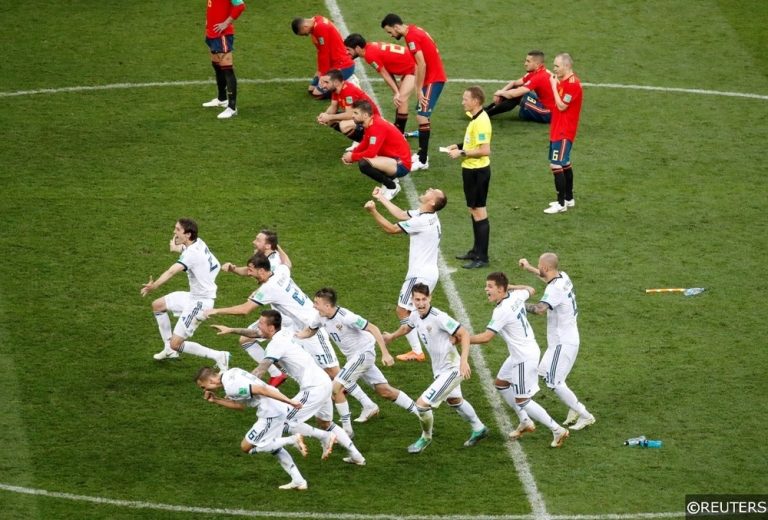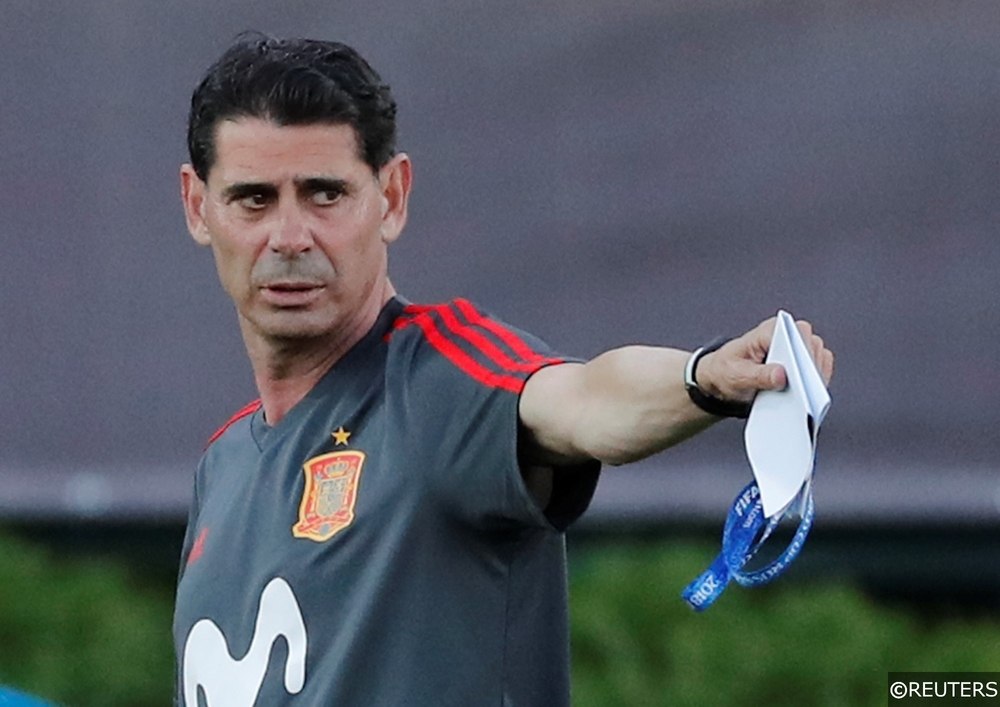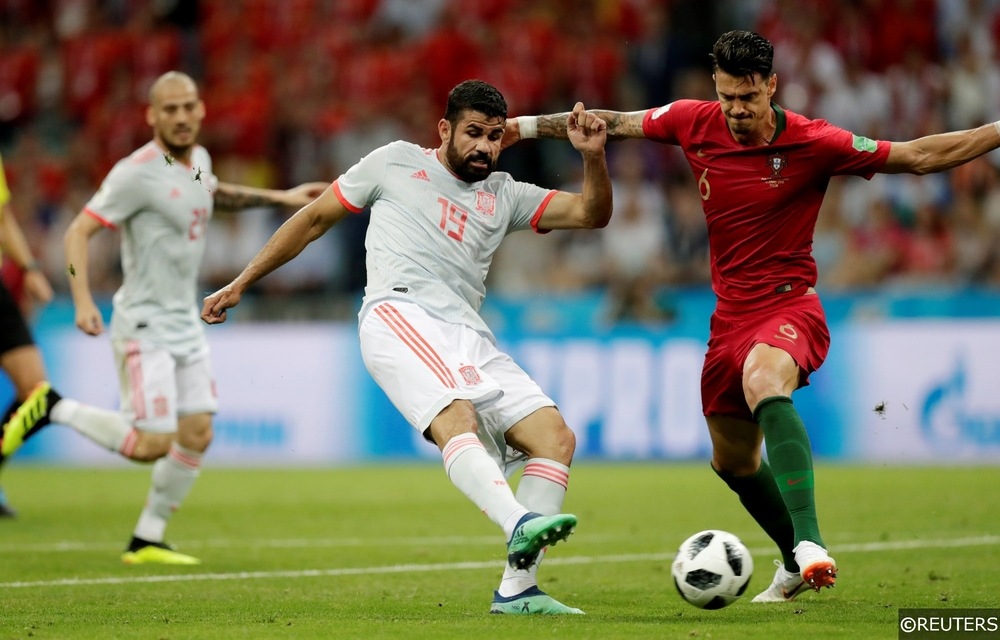
Content Editor at Free Super Tips, Alex was born in the shadow of Old Trafford and is an avid Man Utd fan. After graduating from university he combined his love of football, writing and betting to join FST and now closely follows goings-on in all of the top European leagues.
An extraordinary World Cup lost another of its main contenders on Sunday as hosts Russia stunned Spain with a penalty shoot-out win that brought the curtain down on the international careers of some 21st century football icons. Never again will we see Andres Iniesta on a stage anywhere near as big and while Gerard Pique will continue to turn out for Barcelona, his checkered international career ended in the worst possible way.
It feels very much like the end of an era for Spain and while Sergio Busquets is yet to hit 30 and Sergio Ramos has signalled his intention to play on, it will be the new generation that will lead their country’s challenge in four years time in Qatar.
While obviously the departing stars will be able to look back on their international careers with an immense amount of pride, for now the inquest and debate as to what went wrong in Russia will rage. As the strongest side on the weaker side of the draw, Spain had a golden chance to reach another World Cup Final but 120 frustrating minutes and a couple of missed penalties ensured an early exit for La Roja, the third tournament in a row that they’ve failed to make the Quarter-Finals.
There are a number of factors which contributed to their struggles in Russia:
Read more – Spain’s Best World Cup XI
An Untimely Coaching Switch

It’s hard to imagine how a side could have a worse build-up to a World Cup than replacing their coach just two days before their first match. That is exactly what Spain did when Real Madrid-bound Julen Lopetegui was dismissed with Fernando Hierro stepping in at very late notice.
Given the chaotic preparations, Spain actually played really well in their first game and would have beaten Portugal were it not for a bit of brilliance from Cristiano Ronaldo. However in truth, much of the match preparation would already have been done for that game and as the tournament continued and Spain’s level of performance dropped, they started to look less and less like the side that had really impressed over the previous twelve months under Lopetegui.
In the circumstances, Hierro was probably as good an option as any, given he is held in very high regard as perhaps Spain’s best ever defender. While the general consensus is that the Spanish players wanted Lopetegui to stay on, there didn’t appear to be any real friction in the camp or resistance to Hierro but in key moments, Spain were found wanting and Hierro didn’t have the answer. His tactical nous and managerial qualities were questioned when he was appointed and there was little in Russia to change the opinion that Hierro is anything but a natural coach.
Read more – Hierro replaces Lopetegui
Failure to play to Costa’s strengths

One of the biggest positives from Spain’s World Cup campaign was the performance of Diego Costa in Spain’s opening match against Portugal. It was by far his best showing in an international shirt and his first goal in that game showed what can happen if you play to his strengths. It was a rare moment of directness from Spain as they played long to Costa, who used all of his main assets to score a brilliant solo goal. It felt at that moment that Spain had a Plan B up their sleeves and were willing to at times move away from their relentless ball retention in order to better accommodate their best striker.
However in Spain’s remaining three games, they barely once went long or got crosses into the box, reverting back to their patient probing approach which only sporadically led to clear openings. Costa was left to feed on scraps at times and got none of the service he loves to feed on. It was an exit not dissimilar to those in the last two tournaments with Spain stubbornly sticking to their tiki-taka approach.
While they did rule Europe and the world playing that way between 2008 and 2012, that was during an era when Iniesta was at the very peak of his powers and still had Xavi for company. They also had a striker in the shape of David Villa, who was better suited to the style and a refusal to adapt to their current strengths was another reason for their exit.
Read more – A potential turning point for Diego Costa
Big Players Underperform
2 – Gerard Piqué 🇪🇸 has conceded 2 penalties at the World Cup, more than any other Spanish player in the competition since 1966. Volley. #ESPRUS #WorldCup pic.twitter.com/09XhRTwtE8
— OptaJean (@OptaJean) July 1, 2018
When you really analyse it, few of Spain’s main players, performed at anything like their best level in Russia and the problems started from the back and ran almost entirely through the team. David de Gea was a shaky presence in goal throughout, making a major error in Spain’s opening game to gift Portugal a goal and he never really recovered from that moment. Even in the penalty shoot-out, he may feel as though he should have saved at least one of Russia’s penalties and it was certainly a tournament to forget for the Manchester United man.
The same could be said of Gerard Pique. While his perceived stance in favour of Catalan independence has made him an unpopular figure with many Spanish fans in the latter years of his international career, most concede that he had never let La Roja down. However it was a nightmare ending to Pique’s time with the Spain national team with the Barcelona man making some basic errors in the group stage and then conceding the penalty that gave Russia an equaliser in a last 16 tie that they simply didn’t look like scoring in.
Dani Carvajal was another to have a poor tournament, ultimately losing his place to Real Madrid teammate Nacho for the Russia game. In midfield, Isco was perhaps Spain’s most convincing performer but he didn’t hit the heights he’d managed in tearing into Italy in the biggest of Spain’s World Cup qualifiers. Further up, David Silva had his worst tournament in a Spain shirt and it’s doubtful whether he will still be around in two years time with a host of younger pretenders battling for his position.
Read more – Spain win group without convincing
Hierro’s Last 16 Changes Fail to Pay Off
After a poor display against Morocco, Fernando Hierro perhaps felt as though he had little choice but to mix things up against Russia in the last sixteen. His decisions to leave out Dani Carvajal and particularly Andres Iniesta were big calls to make and ultimately backfired.
It’s widely accepted that Iniesta is perhaps not more than a 60 minute player these days and was likely to struggle with the demands of playing every game at this World Cup. The final group game against Morocco, when Spain were unlikely to even need a result, seemed the ideal opportunity to rest him. However Iniesta played the entire game against the North Africans before being surprisingly omitted from the last 16 line-up when his experience and quality was likely to be more valuable. While he did come on in the Second Half against Russia, with hindsight it feels like Hierro got it the wrong way round and Spain would have benefited more by using someone like Marco Asensio off the bench against a tiring Russian defence in Extra Time.
Asensio started but had little influence on the game while his replacement Rodrigo showed the best way to get at the Russian defence with some direct running but was thrown on too late to really change matters. Spain’s decision to play Nacho over the more attack-minded Dani Carvajal at right-back was also surprising in a game that they were always likely to dominate.
Read more – Hierro’s options ahead of the last 16
Fatigue a factor?
Fatigue has always felt like a bit of a poor excuse and is widely cited as a reason why England’s golden generation failed to deliver on the big stage. Spain’s players certainly struggled to play with pace and intensity in Russia and a very heavy schedule during the domestic season may have also been a factor.
Of all the 32 teams in Russia, Spain’s squad played more minutes during the 2017-18 campaign than any other. In total it was over 85,000 minutes of football for the Spanish, almost 10,000 more minutes than England and 15,000 more than Germany.
Follow Free Super Tips on Twitter to stay up to date with our daily tips and predictions or browse more football content on our website:


